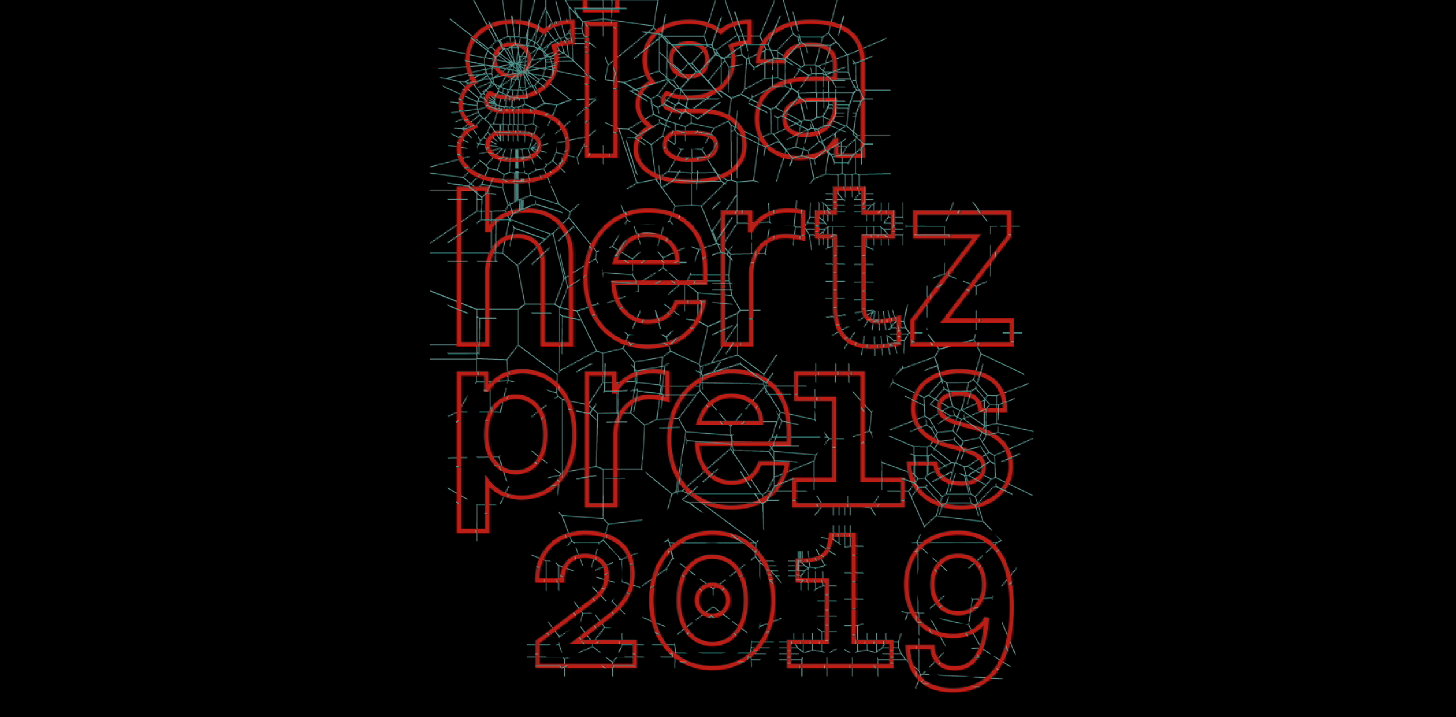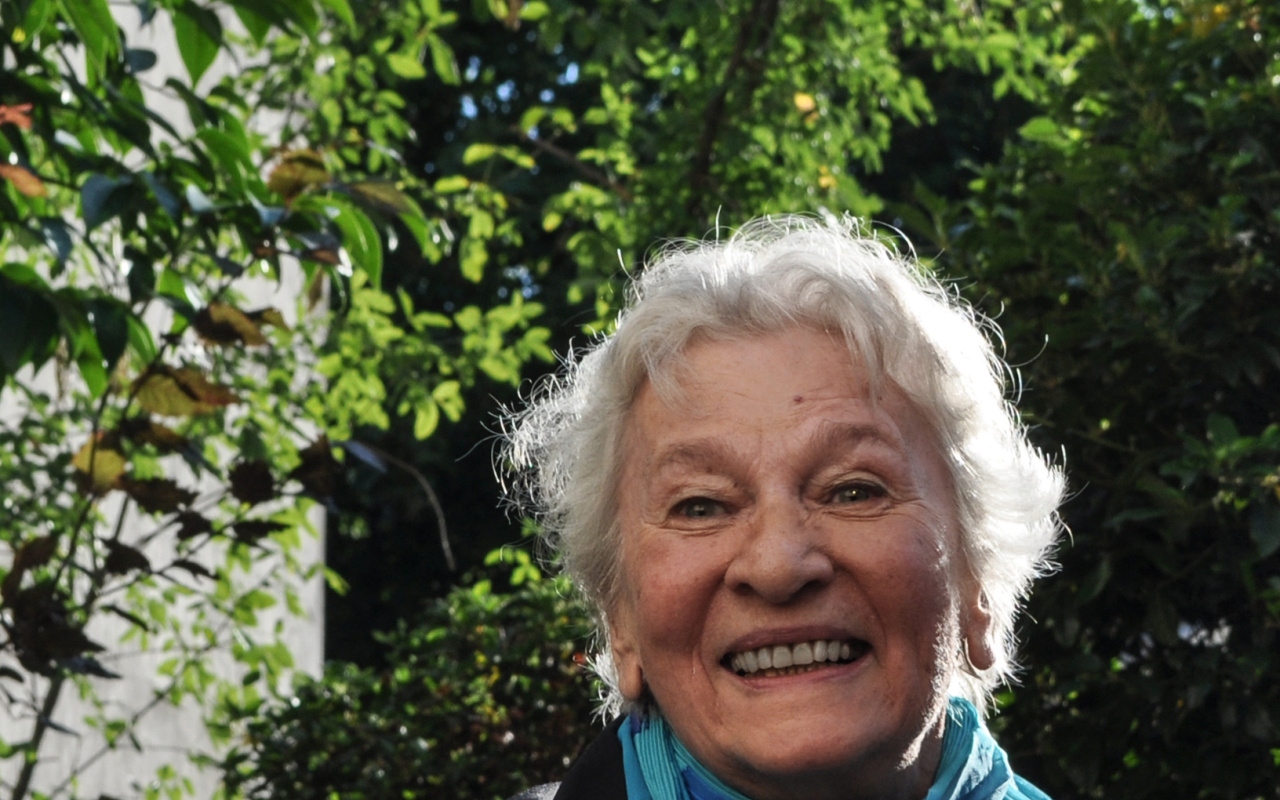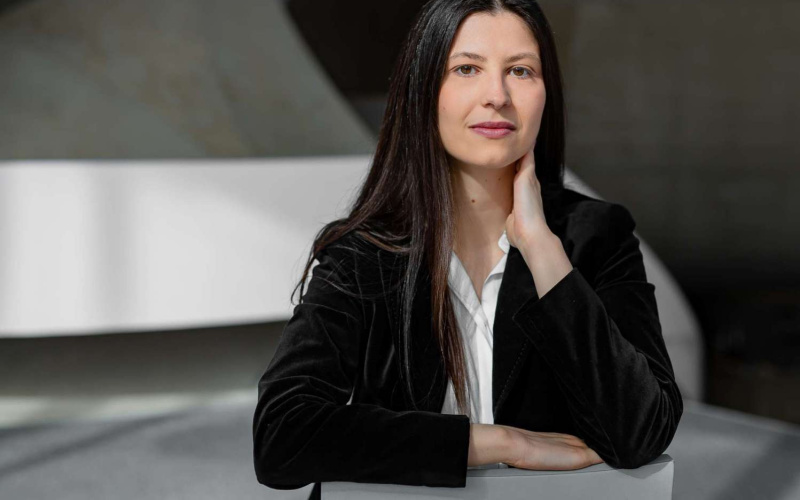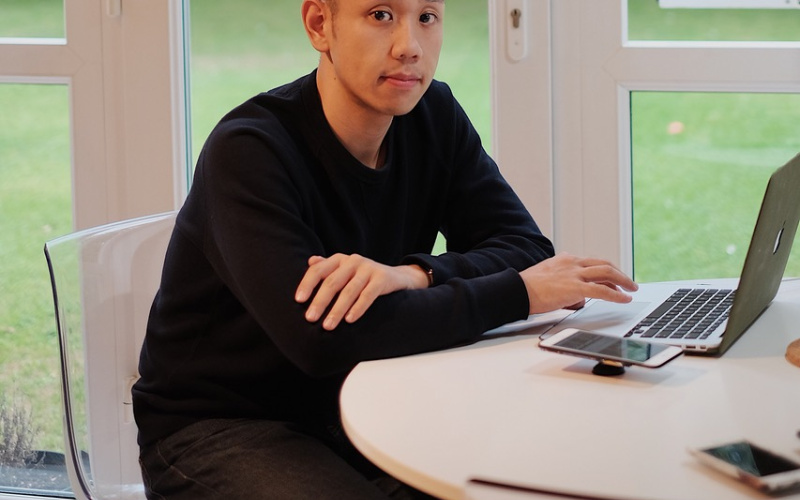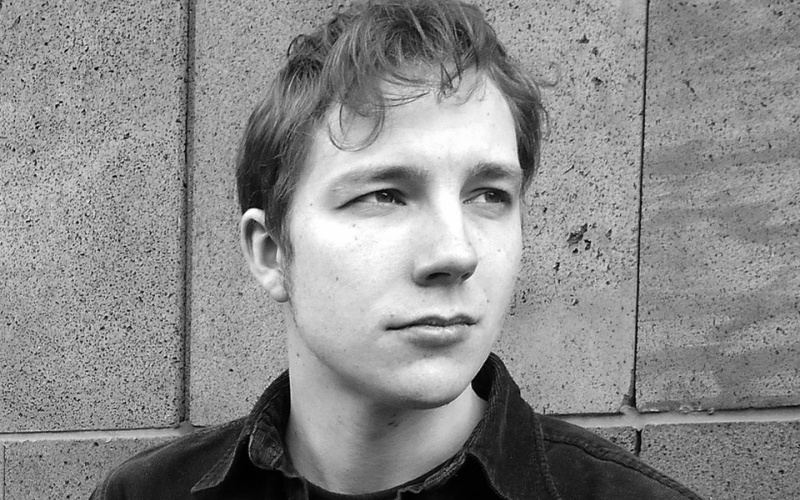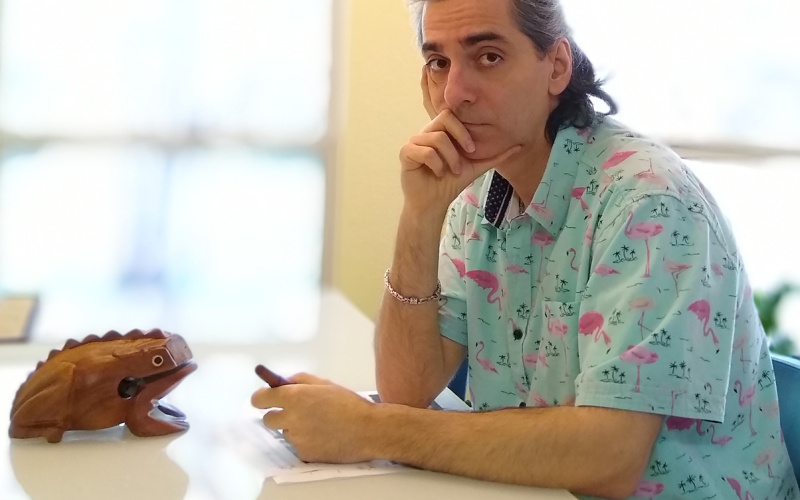Giga Hertz Award 2019: Award Ceremony
Sat, November 23, 2019 7:00 pm CET
- Location
- Media Theater
The 2019 Giga Hertz Grand Prize, endowed with 10,000 euros, goes to Éliane Radigue, Artemi-Maria Gioti, Hongshuo Fan, Panayiotis Kokoras and Otto Wanke this year.
Éliane Radigue's artistic work and career are characterised by a number of peculiarities that guarantee her a special position among the composers of electronic music. As one of the few women in the Studio d'Essai, she managed to work as a composer despite the adverse circumstances and later build an international career. The three-hour work »Trilogie de la Mort« composed between 1990 and 1998 became one of her most famous works. The jury was convinced by Éliane Radigue's consistent and continuous compositional achievement, which approaches the smallest degrees of change like a microscopy of time and sound.
Giga Hertz Production Award
From over 100 international submissions, the jury also nominated two outstanding works: This year's production prizes worth €5,000 will be awarded to the composer and machine learning expert Artemi-Maria Gioti for her composition »Imitation Game«. Artemi-Maria Gioti describes her piece as: »Man and machine are equal partners who influence each other and adapt to each other's actions«. The composer brings AI, machine learning and robotics into her music-making in a humble, touching and very human way. The second production prize, also combined with prize money of € 5,000, goes to the sound artist and multimedia composer Hongshuo Fan for his piece »Handwriting« in the field of live electronics and video. In this interactive multimedia performance piece, the elegant calligraphic gestures of a performer drive rich and dynamic sound and image, which unfold in a sophisticated structure over the piece.
Honorary Mentions
In addition, two Honorary Mentions will be announced for the first time this year. The first honorary award goes to the Czech composer Otto Wanke with his extraordinary piece (»...in...«). The historical-discursive foundation of his approach lies in the fact that Wanke draws on historical models of the avant-garde and reinterrogates them for the present. The second prize of honour goes to Panayiotis Kokoras (»Rhino«) for baritone, saxophone and electronics. Kokoras comments on his work by explaining his way of working: »Periodicity is irreplaceable; it enables a stop to musical speech, a state of suspension of time...«.
Program
Hans Tutschku & SWR Experimentalstudio »Herkunft - entschlüsseln – entbehren« (2018) for violoncello and 9-channel live electronics | |
Hongshuo Fan »Handwriting・WuXing« (2019) interactive Performance | |
Panayiotis Kokoras »Rhino« (2017) for saxophone and electronics |
Speakers of the award ceremony
- Ludger Brümmer, Composer and Head of ZKM | Hertz Laboratory
- Detlef Heusinger, Artistic Director SWR Experimental Studio
- Dr. Palle Dahlstedt, Professor of »Art & Technology« Aalborg University, University of Gothenburg
- Dr. Rebecca Fiebrink, Professor of »Computing« Goldsmith University London
- Björn Gottstein, musicologist, artistic director Donaueschinger Musiktage
Lifetime Award 2019 | Éliane Radigue (France)
Éliane Radigue's artistic work and her career are characterized by a number of peculiarities which guarantee her a special position among the composers of electronic music. She began her early career after sporadic beginnings in the 1950s in the forerunner of the GRM, the Studio d'Essai of the RTF (Radio Tele France) in Paris, under the direction of Pierre Schaeffer. There she designed sound material for Pierre Schaeffer, although her work with Schaeffer certainly did not enjoy the respect she deserved as an artist.
As one of the few women in the Studio d'Essai she managed to work as a composer despite the difficult circumstances and later to build up an international career. This was mainly due to two important factors. In New York she started first with a Buchla synthesizer and later exclusively with the ARP 2500 modular system and tape techniques. She also became a convinced Buddhist. This led her to a style of music in which long sound courses, sound surfaces with the smallest changes, provoked an almost meditative listening posture. The three-hour work »Trilogie de la Mort« composed between 1990 and 1998 became one of her most famous works.
The jury was convinced by Éliane Radigue's consistent and continuous compositional achievement, which approaches the smallest degrees of change like a microscopy of time and sound.
– Author: Ludger Brümmer
Hans Tutschku & SWR Experimentalstudio | »Herkunft - entschlüsseln - entbehren« (2018)
Jury
Ludger Brümmer (Composer, Head of ZKM | Hertz-Lab)
Rebecca Fiebrink (Professor for »Computing« at Goldsmiths University of London)
Palle Dahlstedt (Composer, Professor for »Art & Technology« at Aalborg University)
Björn Gottstein (Musicologist, Artistic Director of the Donaueschinger Musiktage)
Detlef Heusinger (Artistic Director of SWR Experimentalstudio)
Peter Weibel (Artistic Director of ZKM | Karlsruhe)
